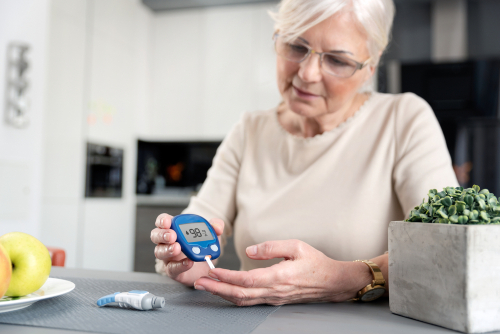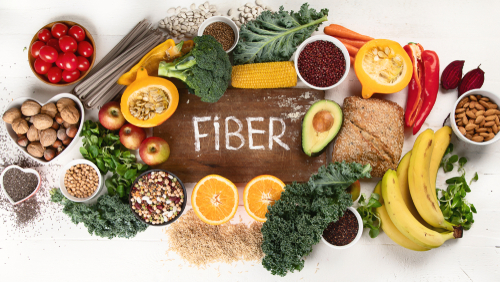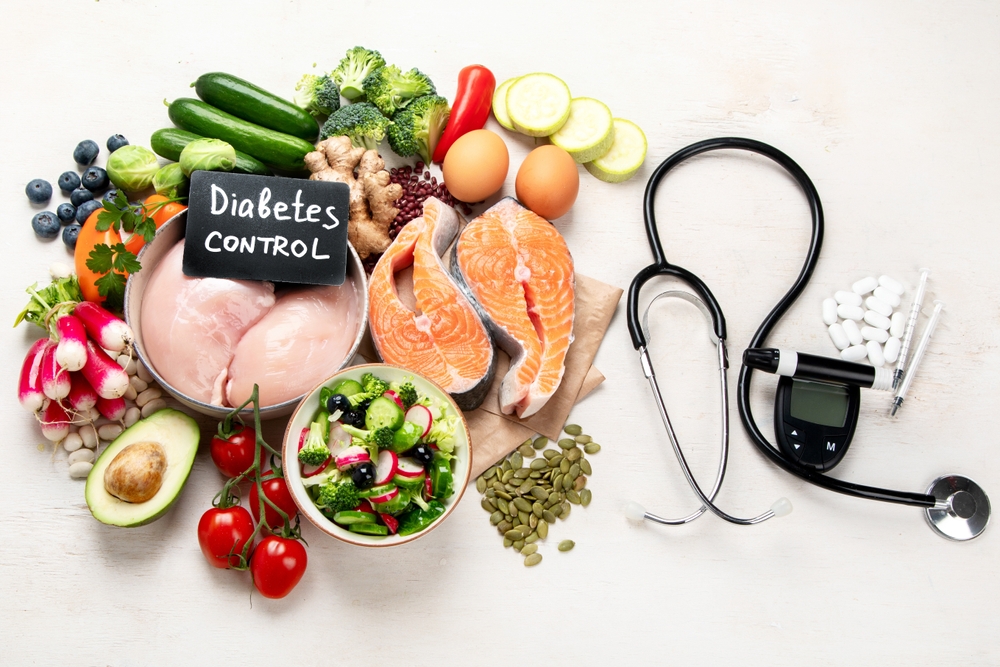What does a balanced diet mean for our elderly loved ones with diabetes? Eating well is vital for older adults living with diabetes. A balanced diet for diabetic elders can make a big difference in how they feel each day.
Eating a variety of healthy foods helps keep blood sugar in check. Proper nutrition is important for health and well-being. The right diet also supports overall energy levels and vitality.
In this blog, we will provide guidance on a balanced diet for diabetic elders.
The Role of Whole Grains in Blood Sugar Control for Older Adults
Whole grains are special foods for seniors with diabetes. They help keep blood sugar levels stable. Whole grains include brown rice, oats, and whole wheat bread.

Switching to whole grains can really help. These foods are high in nutrients and fiber. They provide energy without causing a sudden rise in blood sugar.
Incorporating Healthy Fats: A Guide to Heart Health for Diabetic Elders
Healthy fats are important for everyone, especially for diabetic elders. These fats can be found in foods like nuts, seeds, and avocados. They help keep the heart strong and healthy.
Choosing healthy fats over unhealthy ones is a smart move. Olive oil, for example, is a great option. These fats support heart health while managing blood sugar levels.
The Importance of Fibre-Rich Foods in Diabetic Diets
Fibre-rich foods are great for diabetic elders. They help control blood sugar levels and aid digestion. Fruits, vegetables, and whole grains are perfect examples of fibre-rich foods.

Eating enough fibre can improve overall health. It helps in feeling full longer and reduces cravings. Including fibre in meals aligns with diabetic diet guidelines.
Portion Control and Meal Timing: A Strategy for Stable Blood Sugar
Controlling portion sizes is essential for seniors with diabetes. Smaller portions often work better to manage blood sugar levels. Meal timing is also important for keeping energy steady.
Eating at regular times can aid in blood sugar control. It also promotes consistent energy throughout the day. Older adults should pay attention to when and how much they eat.
Choosing Lean Proteins: Benefits for Diabetic Elders’ Health
Lean proteins are helpful in a balanced diet for diabetic elders. They support muscle strength and overall health. Sources include chicken, fish, and beans, which can be tasty and filling.
Including lean proteins in meals can stabilize blood sugar levels. This approach aligns with the diabetes diet chart recommendations. Eating these key foods for managing senior diabetes enhances nutrition.
Hydration and Its Impact on Blood Sugar Levels and Overall Well-Being
Staying hydrated is crucial for older adults with diabetes. Drinking enough water helps maintain normal blood sugar levels. Dehydration can lead to serious health issues.

Encouraging seniors to drink water throughout the day is important. Herbal teas and coconut water are also good options. Making hydration a habit supports overall well-being.
Embracing a Balanced Diet for Diabetic Elders for Better Health
A balanced diet for diabetic elders is crucial for maintaining stable blood sugar levels and overall health. By including whole grains, healthy fats, and lean proteins, seniors can improve their energy levels and feel better daily.
Encourage your elderly loved ones to focus on portion control, meal timing, and hydration. These simple changes can make a big difference in their health and well-being. Start today by supporting them in making healthier food choices for a brighter, more energetic future.
Understanding the Impact of Social Interaction on Senior Well-being





